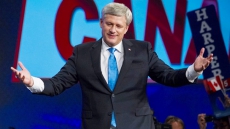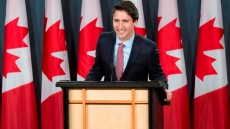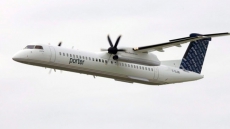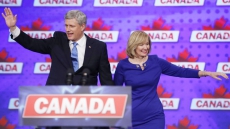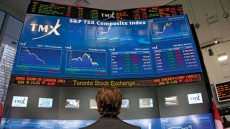OTTAWA — Justin Trudeau and his Liberals are preparing to take over government, although Stephen Harper remains prime minister until he formally submits his resignation to Gov. Gen. David Johnston and Trudeau is formally sworn in. Here are five things to note about the transition, which will ramp up over the next week or two.
— Trudeau's first task will be to select a cabinet. He and a small team of close advisers will tackle a delicate juggling job which requires balancing political clout, talent, demographics, geography and sexes to come up with a group of people who will essentially run the country. The new ministers will all be sworn in at Rideau Hall before starting their new jobs.

— No MPs can sit until the Clerk of the House of Commons receives the formal writs of election from the 338 returning officers in the various ridings. The writs designate the newly elected members, who then must be individually sworn in and sign the roll.

— The moving vans will soon be making calls. Harper will be leaving the prime minister's residence at 24 Sussex Drive to make room for Trudeau. NDP Leader Tom Mulcair will have to vacate Stornaway, the Opposition Leader's home. It's not clear if an interim leader of the Conservatives will move in after Mulcair goes.

— Preparations for a new Parliament will keep things hopping in Ottawa. There will be a protracted game of musical offices as defeated MPs move out, Liberal members shift to nicer digs and Conservative and NDP MPs get shuffled to lesser accommodations. Chairs in the Commons will have to be rearranged to reflect the new realities in the chamber.

— Once the cabinet is named, the MPs are sworn in and the logistics are settled, the Governor General will officially summon Parliament. The MPs will gather in the Commons chamber and then be called to the Senate, where they will be told that their first order of business will be to go back and elect a Speaker. With that chore done, the government can then bring in its speech from the throne and begin the new Liberal era.
FIVE FOREIGN POLICY PRIORITIES THAT JUSTIN TRUDEAU FACES IN THE COMING DAYS

Here are some foreign policy priorities that Justin Trudeau faces in the coming weeks.
1. Getting ready to travel. The international agenda is filled with summits and meetings in the next six weeks, placing a massive burden on the prime minister-designate to get up to speed — fast — on foreign affairs.
In mid-November, there is the G20 leaders' summit in Turkey and the APEC summit in the Philippines. Then there's the Commonwealth leaders' summit in Malta and then the international summit on climate change in Paris.
Trudeau said Tuesday he's only committing to the climate summit for now because he has to form a government, but he was "very hopeful" about going to the G20 and APEC summits.

2. Getting a climate change plan in place. For the Paris meeting, Trudeau will also need to prepare by holding a meeting with provincial premiers in order to present a united Canadian policy.
This could lead to Canada increasing the targets the Harper government has already set to reduce greenhouse gas emissions. The White House said Tuesday it wants Canada to do more on that front. Trudeau said he wants Canada to show "with a clear voice . . . that we are committed to being a positive actor" to reduce greenhouse gas emissions.

3. Fighting ISIL in Iraq and Syria. Trudeau says he would bring home Canada's six CF-18 fighter jets, which are currently involved in the U.S.-led bombing of Islamic State militants in Syria and Iraq. But he has said he agrees with Canada participating in the training of Iraqi ground troops to lead the fight against ISIL on the ground.
That's what Canadian special forces are currently doing. The White House sent another strong message on this point Tuesday: stay the course with us in Iraq, it said. Trudeau said he told Obama "we would continue to engage in a responsible way," saying the U.S. president "understands the commitments I've made around ending the combat missions."

4. Closing some big trade deals. Canada and the European Union signed an agreement in principle on their sweeping free trade deal on goods and services more than two years ago, but it still isn't a done deal.
The legal text is still being scrubbed and it must be ratified in the European parliament and in Canada. Meanwhile, Trudeau needs to give the Trans-Pacific Partnership a read and decide whether he supporters it. A deal was reached on the massive 12-country Pacific Rim trade pact, which covers 40 per cent of the world economy, just two weeks ago.

5. Bringing 25,000 Syrian refugees to Canada by year's end. This could prove to be a massive challenge for Trudeau and quite possibly a pledge he would have to scale back. During the campaign, Trudeau said the Conservatives' dismal record of bringing in Syrian refugees was showing a Canadian face to the world that was less than compassionate.
An Immigration Department spokesperson said Tuesday it was "premature" to discuss what was being planned on that front. Trudeau said Tuesday he will swear in a new cabinet and become prime minister on Nov. 4.
